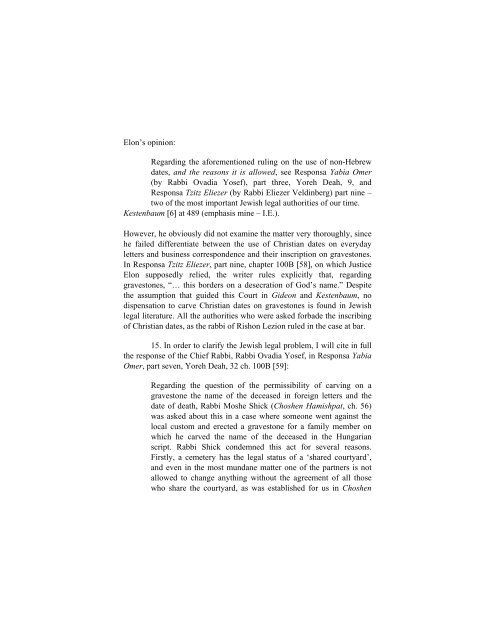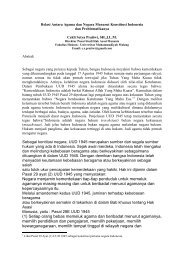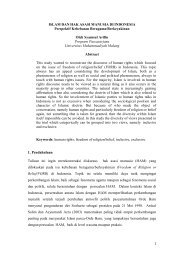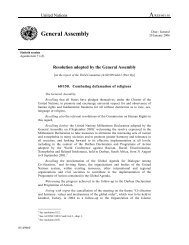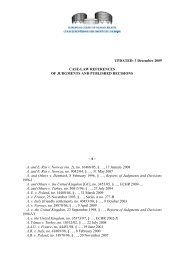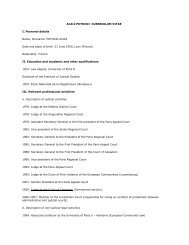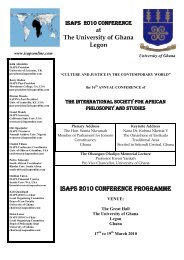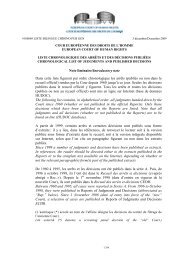Fredrika Shavit v. Rishon Lezion Jewish Burial Society
Fredrika Shavit v. Rishon Lezion Jewish Burial Society
Fredrika Shavit v. Rishon Lezion Jewish Burial Society
You also want an ePaper? Increase the reach of your titles
YUMPU automatically turns print PDFs into web optimized ePapers that Google loves.
Elon’s opinion:<br />
Regarding the aforementioned ruling on the use of non-Hebrew<br />
dates, and the reasons it is allowed, see Responsa Yabia Omer<br />
(by Rabbi Ovadia Yosef), part three, Yoreh Deah, 9, and<br />
Responsa Tzitz Eliezer (by Rabbi Eliezer Veldinberg) part nine –<br />
two of the most important <strong>Jewish</strong> legal authorities of our time.<br />
Kestenbaum [6] at 489 (emphasis mine – I.E.).<br />
However, he obviously did not examine the matter very thoroughly, since<br />
he failed differentiate between the use of Christian dates on everyday<br />
letters and business correspondence and their inscription on gravestones.<br />
In Responsa Tzitz Eliezer, part nine, chapter 100B [58], on which Justice<br />
Elon supposedly relied, the writer rules explicitly that, regarding<br />
gravestones, “… this borders on a desecration of God’s name.” Despite<br />
the assumption that guided this Court in Gideon and Kestenbaum, no<br />
dispensation to carve Christian dates on gravestones is found in <strong>Jewish</strong><br />
legal literature. All the authorities who were asked forbade the inscribing<br />
of Christian dates, as the rabbi of <strong>Rishon</strong> <strong>Lezion</strong> ruled in the case at bar.<br />
15. In order to clarify the <strong>Jewish</strong> legal problem, I will cite in full<br />
the response of the Chief Rabbi, Rabbi Ovadia Yosef, in Responsa Yabia<br />
Omer, part seven, Yoreh Deah, 32 ch. 100B [59]:<br />
Regarding the question of the permissibility of carving on a<br />
gravestone the name of the deceased in foreign letters and the<br />
date of death, Rabbi Moshe Shick (Choshen Hamishpat, ch. 56)<br />
was asked about this in a case where someone went against the<br />
local custom and erected a gravestone for a family member on<br />
which he carved the name of the deceased in the Hungarian<br />
script. Rabbi Shick condemned this act for several reasons.<br />
Firstly, a cemetery has the legal status of a ‘shared courtyard’,<br />
and even in the most mundane matter one of the partners is not<br />
allowed to change anything without the agreement of all those<br />
who share the courtyard, as was established for us in Choshen


